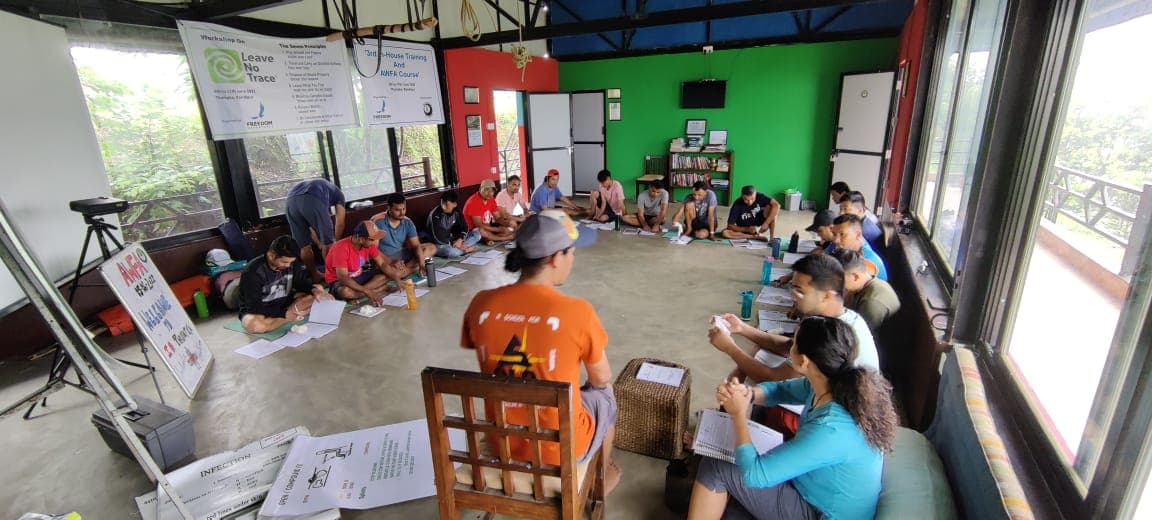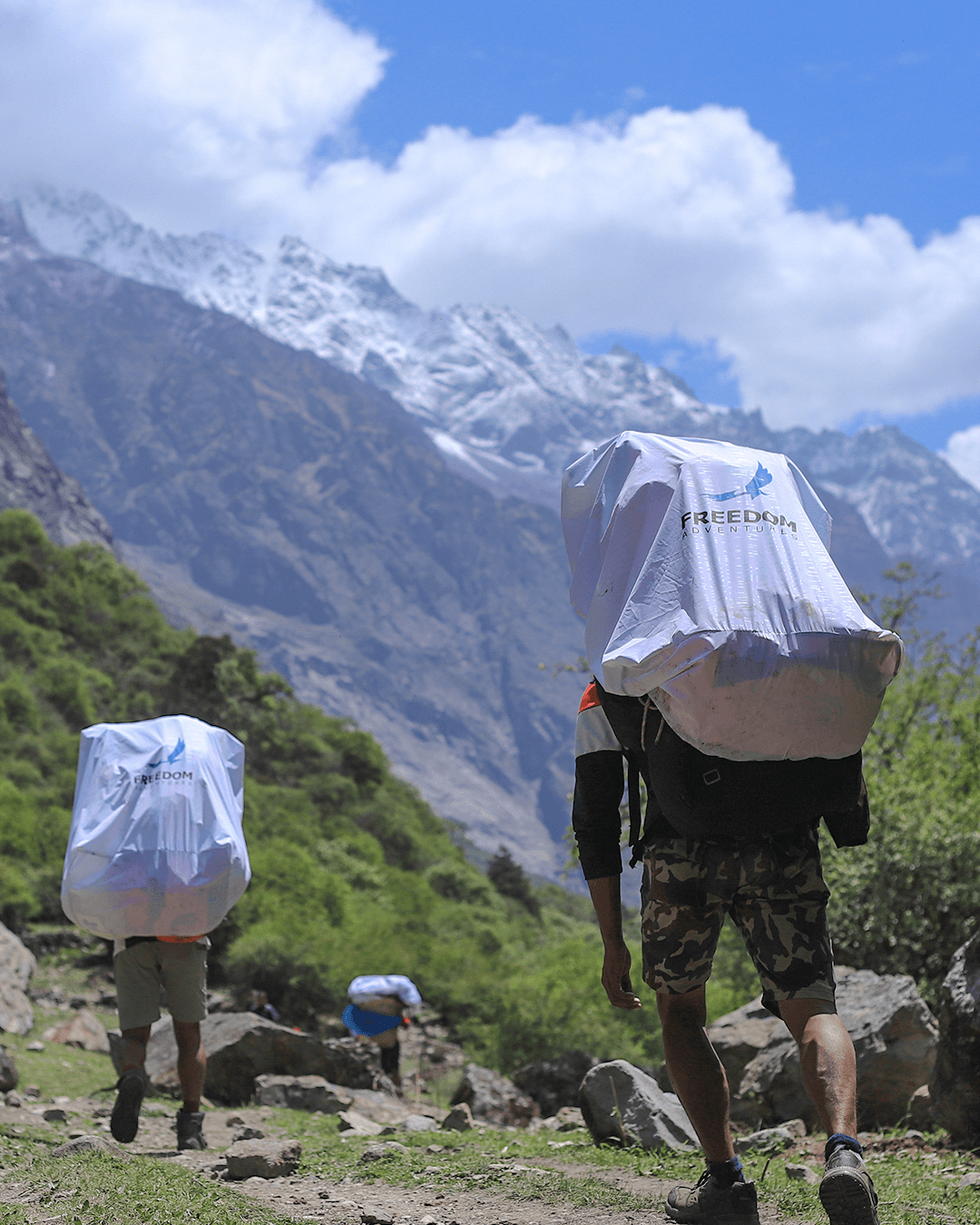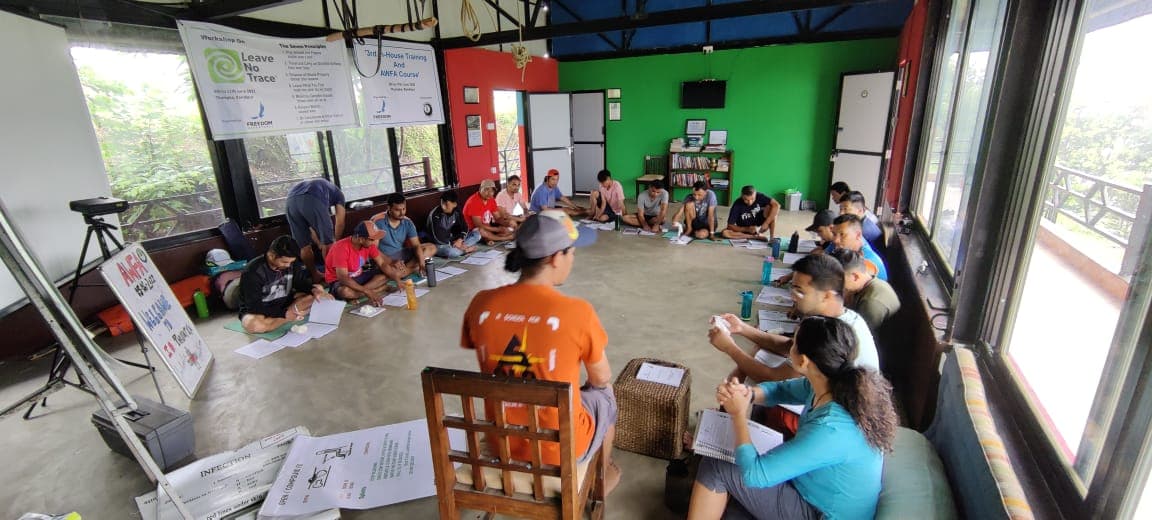Wilderness First Responder(WFR)
Master wilderness medical emergencies in remote environments. The WFR is the gold standard for outdoor professionals operating in Nepal & globally.

Description
The Wilderness First Responder (WFR) course stands as the internationally recognized pinnacle of wilderness medical training. It is an absolutely essential certification for anyone working professionally in remote environments, particularly in challenging regions like Nepal, where access to immediate medical care can be significantly delayed. This comprehensive and demanding program is designed to equip guides, educators, search and rescue personnel, expedition leaders, and dedicated adventurers with the advanced knowledge and practical skills needed to confidently assess and manage complex medical and traumatic emergencies when hours or even days separate you from a hospital.
Operating in Nepal's vast wilderness areas presents unique logistical challenges for evacuation and communication. Recognizing this, the WFR curriculum places intense focus on developing proficiency in thorough patient assessment, differential diagnosis (understanding what might be wrong), advanced treatment techniques applicable with limited resources, and mastering critical decision-making under pressure. Participants delve deep into managing severe trauma, including life-threatening head and spinal injuries, complex fractures, and difficult dislocations. The course also covers intricate medical emergencies affecting various body systems and provides crucial protocols for handling severe environmental challenges endemic to Nepal, such as advanced hypothermia, heatstroke, and the spectrum of high-altitude illnesses (Acute Mountain Sickness - AMS, High Altitude Pulmonary Edema - HAPE, and High Altitude Cerebral Edema - HACE).
A cornerstone of the WFR experience is realistic, high-fidelity simulations. These intensive scenarios, often including challenging night exercises and complex mass casualty incidents, are meticulously designed to build both competence and confidence in managing chaotic situations with limited personnel and equipment. The training emphasizes protocols for long-term patient care, continuous monitoring, detailed documentation, and effective communication with potential evacuation services – skills vital for sustained operations in remote Nepali landscapes. Earning a WFR certification is not just a qualification; it signifies a profound commitment to safety, professional competence, and the well-being of those you are responsible for in the outdoors.
Course Key Info:
- Duration: Typically 8-10 days (approximately 70-80 hours)
- Location: Often conducted in residential or field-based settings specifically chosen to allow for realistic, immersive scenarios reflective of wilderness conditions.
- Certification: Wilderness First Responder (WFR), generally valid for 2-3 years. Professional Rescuer CPR certification is usually included.
- Prerequisites: None, although previous Wilderness First Aid (WFA) training is beneficial. Participants must meet a minimum age requirement (typically 18 years).
- Ideal For: Outdoor professionals including guides, instructors, and educators; Search and Rescue team members; expedition leaders; wildland firefighters; researchers working in remote locations; and individuals planning or undertaking extended, remote wilderness trips in Nepal or similar environments.
Skills Learned:
Participants will develop expertise in:
- Comprehensive Patient Assessment System (PAS)
- Advanced Basic Life Support (Professional Rescuer CPR/AED)
- Advanced management of traumatic injuries, including thorough spinal assessment and head injuries.
- Techniques for reducing certain fractures and dislocations in the field (where appropriate and within scope of practice).
- Managing complex wounds, burns, and infections in wilderness settings.
- In-depth understanding and management of environmental emergencies, including altitude illnesses (AMS, HAPE, HACE), heat-related emergencies (heatstroke, exhaustion), cold injuries (hypothermia, frostbite), and lightning.
- Detailed protocols for assessing and managing common and serious medical emergencies affecting various body systems.
- Principles of administering medications in a wilderness context.
- Strategies for providing effective long-term patient care and monitoring.
- Complex evacuation decision-making and coordinating logistics with external support.
- Introduction to specific wilderness issues like immersion incidents and lightning strike assessment.
Course Highlights
Skills Learned
Prerequisites
What's Included
Course Materials
The following materials are included with your course enrollment and will be available upon registration.
Starts at:
$0.00⏰ Limited spots remaining for upcoming batch.
Upcoming Course Dates:
Group Size
Unknown learners
Location
Kathmandu
Language
English/Nepali
Maximum Altitude
1600m
Have Questions?
Our team is ready to help you with any questions about this course or your specific needs.
Contact UsSatisfaction Guaranteed
If you're not satisfied within the first day, we offer a full refund.
Ready to Transform Your Skills?
Join thousands of students who have elevated their outdoor abilities through our expert-led programs in the Himalayas.


